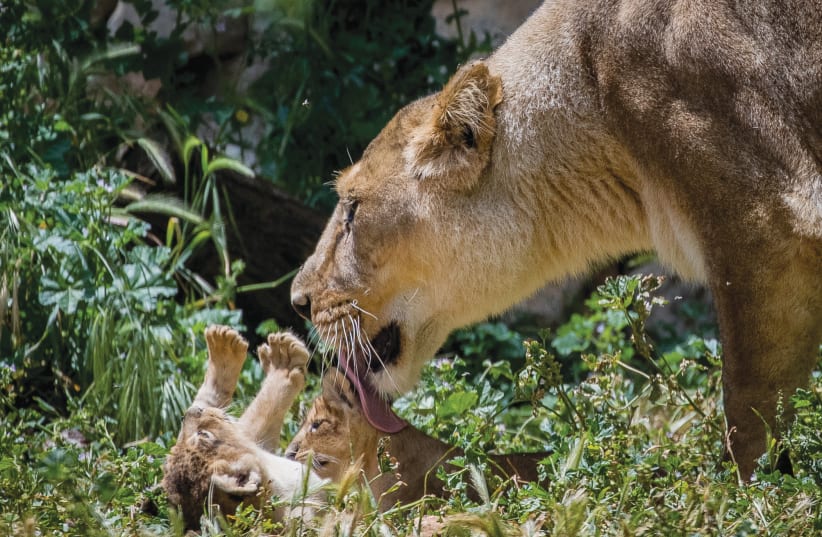Later, the Jerusalem-based zoo posted a wide-eyed picture of one of their tigers, captioned, "Our tiger Hannah's reaction when we told her this morning that our friends at the Al Ain Zoo have a white tiger."Our curious Shaqra, which means blonde, says Hi ✋We definitely will love to have you at #AlAinSafari, the world’s Largest man-made safari ✨ https://t.co/fcHXHU8asT pic.twitter.com/ECEwUtoW5Z
— Al Ain Zoo (@AlAinZooUAE) August 17, 2020
"And friends, this is what we call Zooplomacy," the State of Israel's official Twitter account, ran by the Foreign Affairs Ministry, wrote amid the zoos' greetings to one another.Our tiger Hannah's reaction when we told her this morning that our new friends at the @AlAinZooUAE have a WHITE TIGER!!Send us a picture!!#IsraelUAE pic.twitter.com/PK6JJznp0k
— The Jerusalem Biblical Zoo (@BiblicalZoo) August 19, 2020
Though it may seem surprising, the idea of zoo diplomacy is nothing new. In fact, China has been doing it for thousands of years through the use of its most famous animal: the panda.Though the concept originated back during the Tang Dynasty, when pandas would be sent as diplomatic gifts, modern day China has continued this tradition in a modified fashion, with all pandas being property of China. Originally, the pandas were sent as gifts, but they are now instead loaned out, and are seen as major symbols of Chinese diplomacy.Other countries also use zoos and animals as means of diplomacy. One notable example is Rainy-Rafiki, a northern white rhino born in the Ramat Gan Safari in 2019. The name "Rafiki," which means “friend” in Swahili, was chosen specifically in order to boost ties with Tanzania, coinciding with the year of its first anniversary of establishing an embassy in Tel Aviv.And friends, this is what we call Zooplomacy. @AlAinZooUAE @BiblicalZoo https://t.co/oIRvgbevBB
— Israel ישראל (@Israel) August 17, 2020
